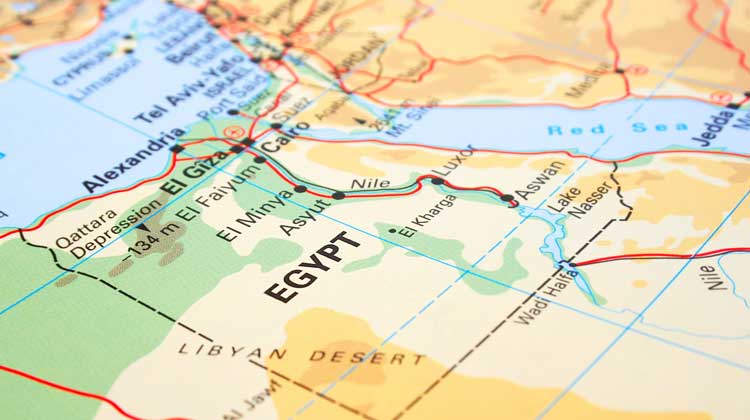
Reuters reported Sunday that attackers at the Al Rawdah mosque in Bir al-Abed, Egypt, carried the Islamic State of Iraq and Syria (ISIS) flag as they killed more than 300 worshipers Friday. As of Sunday, no group had claimed responsibility for the attack.
After the attack, President Donald Trump called the attack “horrible and cowardly” on Twitter. “The world cannot tolerate terrorism, we must defeat them militarily and discredit the extremist ideology that forms the basis of their existence,” he wrote.
A few hours later, he insisted the country must “get tougher and smarter” and also referenced U.S. borders. “Need the WALL, need the BAN!” he continued. “God bless the people of Egypt.”
The Associated Press reported Saturday that the Egyptian military said warplanes attacked several vehicles that carried some of the attackers but was quick to note a media ban in Sinai, so it was impossible to confirm.
Worshipers at the mosque practiced Sufism, which includes forms of mysticism in its practice.
“Sufism is a strand of Islam that eschews materialism and emphasizes the inward search for God,” reported Amanda Erickson in The Washington Post. “Sufi adherents are responsible for some of Islam’s most famous and beloved literature, including the poems of Rumi. Followers promote values such as tolerance and pluralism.”
Sufis have been targets of extremist attacks in the past, but Erickson noted it’s not necessarily a mission considered by all extremists. With ISIS, however, it’s different, as they consider Sufis nonbelievers.
“In an interview with an Islamic State magazine in January, one of the organization’s top commanders in Sinai outlined his hatred for Sufism,” Erickson wrote. “He labeled Rawda, the district where Friday’s attack occurred, as one of three areas dominated by Sufis that his group hoped to ‘eradicate.’”
The Wall Street Journal editorialized over the weekend that the attack is a reminder Muslims themselves continue to be primary Islamic terror targets, particularly in Egypt, and President Abdel Fattah Al Sisi is showing his own difficulty dealing with the problem.
“Authoritarian rule is no guarantee of success against jihadism, and Mr. Sisi is a particular target after he deposed the Muslim Brotherhood in 2013,” the editorial said. “The U.S. can help with intelligence, but Mr. Sisi has the challenge of defeating the terrorists while encouraging fewer jihadist recruits by opening Egyptian civil society and politics to more voices.”
© 2017 Homeland411